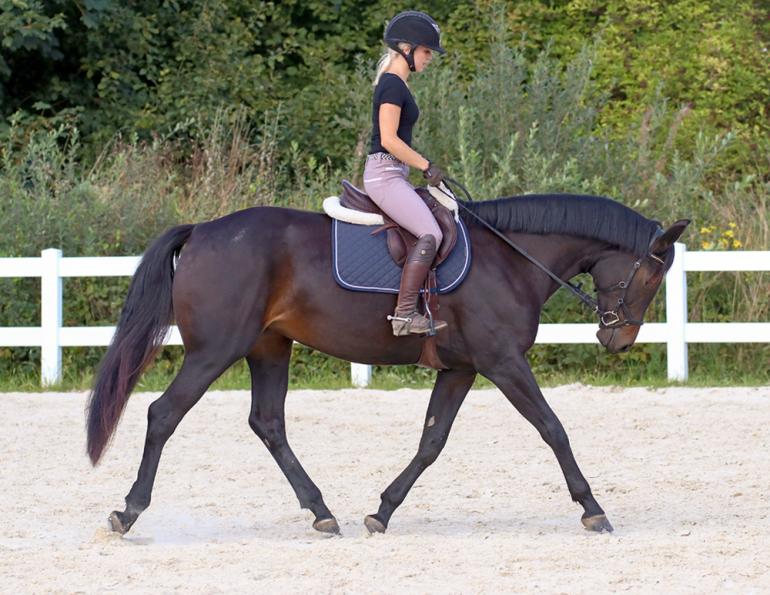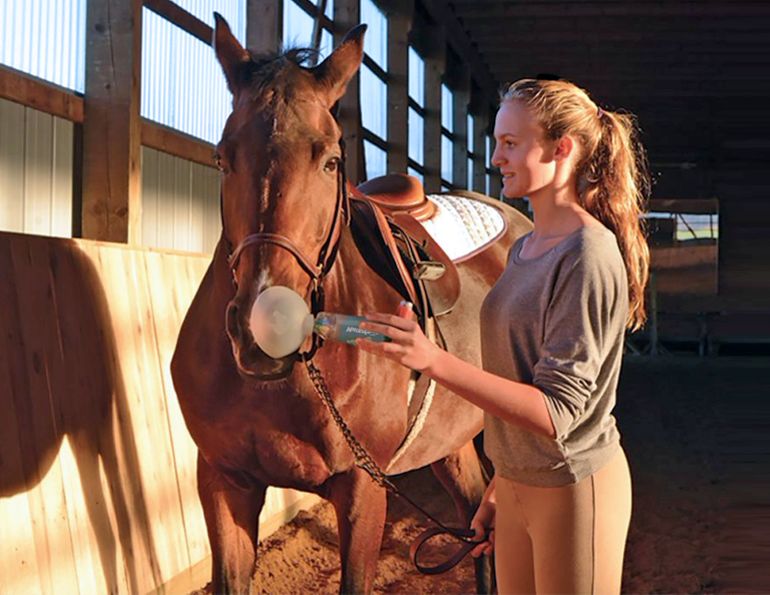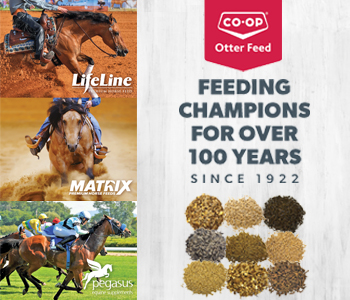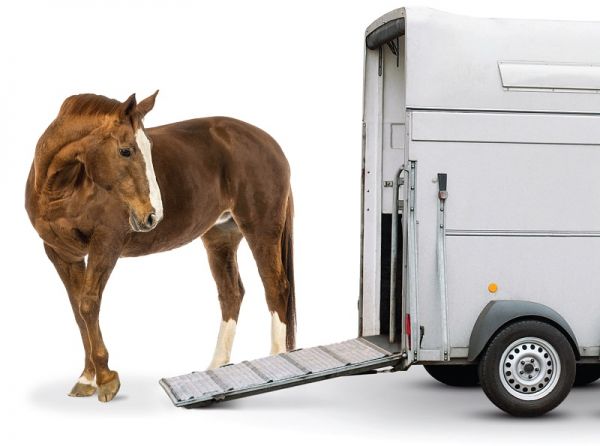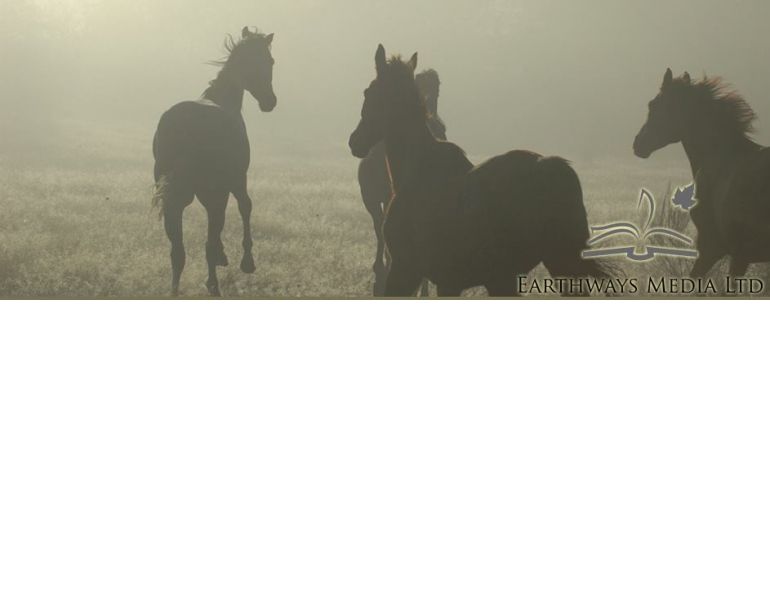Sponsored
By Joe Lyman, DVM, MS
Equine botulism occurs when horses are exposed to botulinum neurotoxin, an incredibly powerful toxin produced by the bacteria Clostridium botulinum. The most common way a horse becomes exposed to this toxin is by eating feed that has been contaminated with bacterial spores and subsequently having conditions that allowed for growth of those bacteria and release of the toxin. Clostridium botulinum spores can be found in soil almost anywhere, making contamination with these spores extremely common. High risk feeds for equine botulism include haylage, silage, and round bales. Any feed, however, can become contaminated and reports of equine botulism caused by square bales, pelleted feeds, sweet feeds, and even pasture clippings have been received.
The first signs of equine botulism are generally vague neurologic signs like abnormal gait or dropping feed. Almost all affected horses will have loss of eyelid, tail, and tongue tone. Some horses will display mild signs of colic as well. Untreated, these symptoms will progress to the horse being unable to stand, eat, or drink. Symptoms can progress over hours to days, with the faster progressions being associated with higher amounts of consumed toxins and a worse prognosis. Once a horse has become unable to stand on its own the prognosis is grave.
Unfortunately, about half of horses affected with botulism will die, even after expensive therapy with specific antibodies is attempted. Proper processing and storage of feed is important to keeping the spores from becoming active and producing toxin, but only a microscopic amount of toxin is required for a lethal dose. For this reason, prevention is the best approach to equine botulism. Vaccination remains the most important and effective means of preventing equine botulism. An initial three-dose series is used with annual boosters thereafter. Pregnant mares are vaccinated near the end of gestation to increase antibodies in colostrum to be transferred to their foals. BotVax B, Clostridium botulinum Type B toxoid, prevents type B botulism, the most common form of botulism affecting horses.
Ask your veterinarian about BotVax B to protect your horses from this deadly toxin.
NEOGEN.com - equinebotulism@NEOGEN.com - 800-621-8829 (USA/Canada) - 859-254-1221






